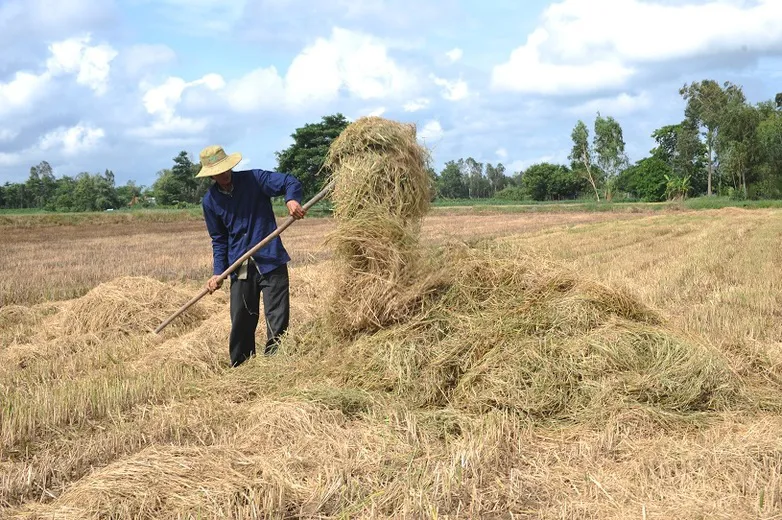Bioenergy helps Vietnam move towards low-carbon journey
Bioenergy, which can tap resources in the country possesses certain comparative advantages in agriculture, can be a key factor in Vietnam’s net zero journey.
Biomass energy is defined one of the main contributors to Vietnam’s power mix, largely serving its net-zero commitments made at COP26.
| Agricultural by-products become one of the main sources of bioenergy. Photo: GIZ |
Vietnam has strong potential for bioenergy as the available biomass resources in the country include post-harvesting and post-processing agroforest residues and waste such as bagasse, straw, rice husks, coffee husk, coir, wood residues and other agricultural/industrial by-products.
To facilitate this, the Vietnamese Government has promulgated key policies and support mechanisms on biomass energy development.
In its revised National Power Development Plan VII (PPD8) and the Renewable Energy Development Strategy, Vietnam aims to increase its biomass energy share in power production from 1% in 2020 to 2.1% in 2030 and to 8.1% in 2050.
Mai Van Trinh, Director of Institute for Agriculture Environment under Ministry of Agriculture and Rural Development, highlighted the nation’s bioenergy potential and the agricultural sector’s ideas to meet COP26 targets.
Among renewable energy industries, biomass energy is appreciated as a particularly suitable source to Vietnam's conditions by many economic and energy experts for following reasons: taking advantage of abundant biological inventories in Vietnam; contributing to improve the livelihoods of farmers; effective in remote terrains; meeting many investment possibilities; having positive impacts on environment, such as reducing greenhouse gas emissions and encouraging people to do afforestation, he said at a recent workshop held by the Electricity and Renewable Energy Authority (EREA) of the Ministry of Industry and Trade (MOIT) and the Deutsche Gesellschaft für Internationale Zusammenarbeit (GIZ) GmbH.
According to Institute of Energy, total biomass materials in Vietnam reaches 118 million tons/year or 80.7 million tons of oil equivalent, doubling oil volume.
At the end of 2013, the Ministry of Industry and Trade submitted the government a mechanism to support biomass energy production.
Role of BEM and German expertise
To tap the potential of bioenergy in Vietnam, the Government of Germany has launched a four-year project to improve the preconditions for the sustainable use of biomass residues for power and heat production.
The Climate Protection through Sustainable Bioenergy Markets in Vietnam (BEM) in 2019-2023 funded by German Federal Ministry for the Environment, Nature Conservation and Nuclear Safety (BMU) through the International Climate Initiative (IKI) is playing a crucial role in supporting the Vietnamese Government in increasing the share of bioenergy in the country’s overall power mix.
BEM is aimed to improve the preconditions for the sustainable use of biomass residues for power and heat production.
The project, which is implanted by EREA and GIZ, is a federal enterprise supporting the German Government in achieving its objectives in the field of international cooperation for sustainable development.
Key activities include supporting regulatory adjustment to planning and licensing biomass energy projects; improving the private sector’s capacities to develop biomass ventures and enhance financial institutions’ capacities to finance such ventures; and facilitating technology cooperation between Vietnamese and international enterprises, research institutions, and universities on the use of biomass for electricity and heat generation.
Nathan Moore, Director of GIZ BEM project, said discussions by both domestic and international experts show one step toward addressing challenges in the bioenergy sector, fostering market conditions for both public and private stakeholders and contributing to Vietnam’s COP26 commitments. “It will bring new insights to our collective efforts to recognize bioenergy as a key contributor to Vietnam’s energy and development goals, as we strive together towards a low-carbon future,” he noted.









